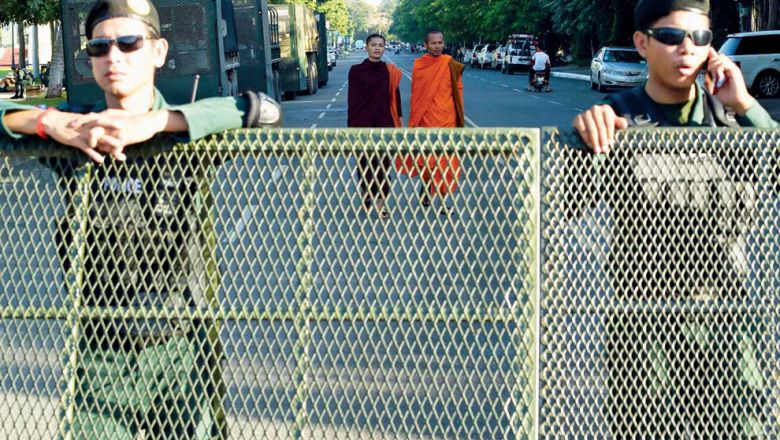Democracy in Kingdom dealt a setback
Dr Markus Karbaum
The dissolution of the Cambodia National Rescue Party (CNRP) is the most serious setback of Cambodian democracy since the violent incidents of 1997. The pure existence of a relevant opposition is one of the main indicators for a functioning democracy which cannot be substituted by legislators and commune councillors without electoral legitimacy.
Beyond, the CNRP’s contribution to the emergence of a democratic political culture was limited. While only a few politicians acted with a self-concept as representatives of the people, the majority remained rather self-effacing.
For years, not a single politician became an expert in a certain policy area while the MPs were shy of any debate in parliament. Despite heavy foreign assistance, the CNRP failed to develop a comprehensive party platform. Frequent parliamentary boycotts, nepotism, factional rivalries and racist approaches were further concomitants, questioning its governability generally. And as nobody really resisted the dissolution, the CNRP is even not a democratic martyr party.
Actually, democracy is not an end in itself and therefore theoretically expendable. Social justice, rule of law, and the respect for fundamental human rights are principles that are even more important for a society.
However, a democracy is an empiric precondition as it is more eligible than any other form of government to prevent despotism and corruption. There are no doubts that the Cambodian regime has been dramatically failing to ensure these principles for decades and the recent dissolution of the CNRP makes a political change even less likely.
While the ruling Cambodian People’s Party (CPP) just relies on the collective benefits of unleashed capitalism, the opposition promised solutions for those who cannot compete in any public or private affair where the access to the CPP’s overwhelming and exclusive political networks are imperative.
Surprisingly, as the number of people who usually get a raw deal is increasing, the regime did not face any noteworthy resistance during the creeping dissolution process. Obviously neither the CNRP nor its voters thought protest could be suitable – not after the amendments to the Political Parties Law, the arrest of its president and not after final the court decision.
This shows the low potential of a so-called colour revolution the government addresses almost every week. In other words, the political dissatisfaction is still insufficient for the emergence of an absolute will for change.
This is quite good news for the political elite and is appropriate to end their nervousness. In order that the plan works completely, the ruling CPP needs not only a landslide victory in parliamentary elections in July, but also a high turnout.
Currently, it is hard to predict how hitherto CNRP voters will behave at the ballot box – given that the regime is able to motivate people to participate in upcoming elections, maybe by using rather the stick than the carrot.
However, what is the point of such elections? As nobody is able or willing to oppose the de-democratisation of Cambodia, the CPP will continue ruling as it has done with electoral legitimacy. At least in the past, elections forced its politicians to keep in touch with the people.
It seems that the leadership perceives advantages of this necessity – otherwise elections would have been abolished already (of course, it is only a façade of responsibility towards the people as strong hierarchic patterns still divide the ruling from the ruled class).Though, without the pressure of an opposition, the ability to detect (and to react on) numerous dysfunctional phenomena of Cambodia’s socioeconomic development could easily decrease.
Probably, this could stabilise the raison d’être for Cambodia’s numerous non-governmental organisations – at best. At worst, the regime lumps them together with the CNRP as politically biased and disloyal elements.
Unfortunately, as those who perceive the positive contribution of these NGOs (along with a noteworthy opposition and a free press) to the Cambodian society remain a minority within the regime’s top leadership, the demolition of pluralistic principles could continue.

I am very appreciative to get word from you on the political climate in Cambodia. I hope we can offer support on this platform for getting the word out on the fascistic climate that seems to be emerging there. 100% upvote and Resteem. @dakini5d
well that is troubling. Thank you for bringing this to my attention
like this post